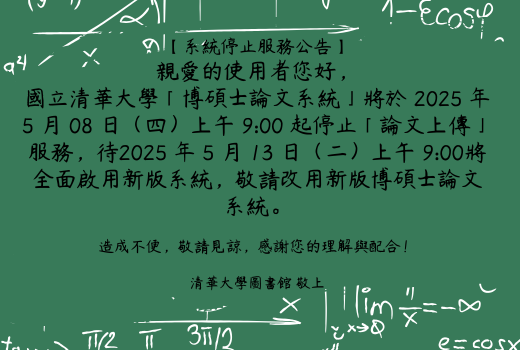|
參考文獻
中文文獻
1.Neuman, W. L.(2014)。當代社會研究法:質與量化取向(第二版)(王佳煌、潘中道、蘇文賢、江吟梓譯)。臺北市:學富文化。(原著出版年:2011)
2.王松輝(2015)。中文版Connor-Davidson復原力量表之信效度分析。國立彰化師範大學復健諮商研究所碩士論文,彰化縣。取自https://hdl.handle.net/11296/3sy9n6
3.王昭琪、蕭文(2007)。國中生之生活壓力、憂鬱經驗與復原力之相關研究。生活科學學報,11,1-31。
4.王琡棻(2011)。復原力研究新趨勢—在學校脈絡中促進學生教育性復原力。輔導季刊,47(3),1-14。http://doi.org/10.29742/GQ.201109.0001
5.王琳雅(2017)。成人英語學習焦慮與完美主義之研究。國立中山大學教育研究所碩士論文,高雄市。取自https://hdl.handle.net/11296/y2jvhk
6.王鴻裕(2011)。臺中市國民小學校長復原力之研究。國立臺中教育大學教育學系碩士論文,臺中市。取自https://hdl.handle.net/11296/ue3ubp
7.方紫薇(2011)。雙向度完美主義與正負向情感、學習困擾關係之研究:以反芻及因應策略為中介。中華輔導與諮商學報,31,33- 60。http://doi.org/10.7082/CJGC.201112.0034
8.方紫薇(2012)。完美主義與學習困擾、正負向情感之關係:反第思考之中介效果。教育心理學報, 43(4),735-762。http://doi.org/10.6251/BEP.20110302
9.白秀玲(2010)。國中資優生完美主義與負向情緒模式之建構研究。特殊教育研究學刊,35(2),103-133。http://doi.org/10.6172/BSE201007.3502005
10.李正源(2008a)。羞愧感:完形治療取向的觀點。諮商與輔導,267,39-44。
http://doi.org/10.29837/CG.200803.0014
11.李正源(2008b)。督導中的羞愧感。諮商與輔導,269,40-46。
http://doi.org/10.29837/CG.200805.0012
12.李如玉、丁原郁(2009)。諮商工作者完美主義傾向與專業耗竭。諮商與輔導,285,33-36。http://doi.org/10.29837/CG.200909.0014
13.李妍荻、王鵬智(2013)。知覺自己過重的女性其完美主義、自我效能憂鬱傾向以及心因性暴食症傾向之相關研究。輔仁醫學期刊,11(2),113-122。
14.李建興(2007)。幼兒教師的自我韌性與幸福感之相關研究。樹德科技大學幼兒保育學系碩士論文,高雄市。取自https://hdl.handle.net/11296/b4sh48
15.李新民、葉寶青(2014)。老年人完美主義與情緒之相關研究初探。人文社會電子學報,10(1),73-96。
16.吳欣怡(2012)。全職實習諮商心理師完美主義、焦慮及諮商自我效能之相關研究。中國文化大學心理輔導學系碩士論文,臺北市。取自https://hdl.handle.net/11296/vhehn8
17.吳美琪(2013)。親子關係、同儕關係對國小高年級學童自我韌性之相關研究。臺灣首府大學幼兒教育學系碩士班碩士論文,臺南市。取自https://hdl.handle.net/11296/3k354v
18.呂翊庭(2014)。「苦惱自責反芻」和「深思反省反芻」對於 大學生的羞愧感與自殺行為風險之關係的影響。玄奘大學應用心理學系碩士班碩士論文,新竹市。取自https://hdl.handle.net/11296/xqmnru
19.林世媛(2016)。完美主義成人的生命經驗研究。國立臺北教育大學心理與諮商學系碩士班碩士論文,臺北市。取自https://hdl.handle.net/11296/wx99sm
20.林志哲(2007)。發現復原力~一個來自心理脈絡的觀點。輔導季刊,43(1),1-8。http://doi.org/10.29742/GQ.200703.0001
21.林浥雰(2010)。青少年情緒智能、復原力與生活適應之相關研究。國立臺灣師範大學碩士論文,臺北市。取自https://hdl.handle.net/11296/44jwn6
22.施芊妤(2015)。異性戀大學生在親密關係中羞愧感與親密信任的交互作用對生氣情緒之影響研究。國立臺南大學諮商與輔導學系碩士班碩士論文,臺南市。取自https://hdl.handle.net/11296/3b2n45
23.洪福源(2005)。強化個人生活的力量與自信-復原力的觀點。輔導季刊,41(2),37-45。http://doi.org/10.29742/GQ.200506.0006
24.胡韻玲(2017)。國中生羞愧感與嘲笑風格關係之研究─以自尊為調節變項。國立清華大學教育心理與諮商學系碩士論文,新竹市。取自https://hdl.handle.net/11296/35v7yq
25.翁聞惠(2018)。大學生自我韌性量表編製研究。國立嘉義大學輔導與諮商學系研究所碩士論文,嘉義市。取自https://hdl.handle.net/11296/t7ct85
26.高晓芳、王晓博、李晋(2008)。完美主义心理研究简述。現代生物醫學進展,8(1),138-140。
27.陳正嘉、柯慧貞、林旻沛、周鉦翔、陳廣圻(2011)。中文版多向度完美主義量表之心理計量分析。中華心理衛生學刊,24(1),61-96。http://doi.org/10.30074/FJMH.201103_24(1).0003
28.陳金定(2008a)。依附關係與憂鬱症狀之因果模式探討:罪惡感與羞愧感之中介角色及其與憂鬱症狀之關係。教育心理學報, 39(4),491-512。
http://doi.org/10.6251/BEP.20070917
29.陳金定(2008b)。青少年親子依附、基本心理需求與羞愧感因果模式之探討。教育心理學報,40(2),241-260。http://doi.org/10.6251/BEP.20080318.2
30.陳金彌、陳月枝(2007)。青少年復原力之概念分析。腫瘤護理雜誌,7(1),31-41。http://doi.org/10.6880/TJON.200706_7(1).04
31.陳詩潔、吳麗娟(2008)。大學生的共依附特質、自我感受與愛情關係品質之相關研究。教育心理學報,40(1),153-177。http://doi.org/10.6251/BEP.20080407
32.連廷嘉(2015)。中小學教師的依附關係、完美主義、社會支持、憂鬱與慢性疲勞症候群之相關研究。諮商心理與復健諮商學報,28,35-56。http://doi.org/10.6308/JCPRC.28.02
33.常欣怡、宋麗玉(2007)。青少年復原力概念與相關研究之探究。東吳社會工作學報,17,171-192。http://doi.org/10.29734/SJSW.200712.0006
34.張哲勳(2009)。龜毛的設計:完美主義行為觀察與設計應用。東海大學工業設計學系碩士論文,臺中市。取自https://hdl.handle.net/11296/bqefe6
35.陳蓉蓉(2010)。大學生完美主義性格傾向、挫折容忍力與心理適應之相關研究。國立新竹教育大學教育心理與諮商學系碩士班碩士論文,新竹市。取自https://hdl.handle.net/11296/6z43jf
36.許苔意(2017)。青少年父母教養方式、雙元自主發展與完美主義傾向之相關研究。國立高雄師範大學諮商心理與復健諮商研究所碩士論文,高雄市。取自https://hdl.handle.net/11296/f99zmr
37.許晴雯、陳斐娟(2013)。教師完美主義傾向與心理健康初探。諮商與輔導,334,10-13。
38.曾文志(2006)。復原力保護因子效果概化之統合分析。諮商輔導學報:高師輔導所刊,14,1-35。http://doi.org/10.6308/JCG.14.01
39.曾文志(2008)。大學生的生活事件、人際長處與心理健康之復原力取向研究:中介. 與調節效果的探討。教育心理學報,40(2),221-240。http://doi.org/10.6251/BEP.20080310
40.曾文志(2017)。復原力的概念分析與評估工具之建構。教育與心理研究期刊,40(1),87-118。http://doi.org/10.3966/102498852017034001004
41.曾文志、孫毓英(2009)。自尊、樂觀與積極因應對歷經多種創傷事件大一學生心理適應的保護作用:以某科技大學一年級學生為例的個人焦點取向復原力研究。教育學刊,32,45-78。
42.曾珮媛(2010)。諮商師及準諮商師完美主義與諮商自我效能之相關研究。國立臺東大學碩士論文,臺東縣。取自http://doi.org/10.6836/NTTU.2010.00279
43.曾婉君(2014)。高中職生完美主義、自尊與復原力之相關研究。國立臺灣師範大學教育心理與輔導學系在職進修碩士班碩士論文,臺北市。取自https://hdl.handle.net/11296/8gtyg7
44.曾筱恬(2010)。自尊、人際關係、復原力與大學生的憂鬱行為表現。國立政治大學教育研究所碩士論文,臺北市。取自https://hdl.handle.net/11296/p92s25
45.黃瓊慧(2010)。成人完美主義、孝道信念與心理健康之相關研究。國立師範大學教育心理與輔導學系碩士論文,臺北市。取自https://hdl.handle.net/11296/6whs92
46.董力華(2003)。大學生完美主義傾向及其相關因素研究。國立高雄師範大學教育學系博士論文,高雄市。取自https://hdl.handle.net/11296/j6x49k
47.董力華(2008)。完美主義與自尊、成就動機、非理性信念及身心適應之相關研究。高醫通識教育學報,3,75-98。http://doi.org/10.6453/KMUJGE.200812.0075
48.楊宜璋(2013)。高中學生倦怠感、復原力與心理健康之相關研究。國立臺灣師範大學教育心理與輔導學系碩士在職專班碩士論文,臺北市。取自https://hdl.handle.net/11296/e8n2ch
49.詹雨臻、葉玉珠、彭月茵、葉碧玲(2009)。「青少年復原力量表」之發展。測驗學刊,56(4),491-518。http://doi.org/10.7108/PT.200912.0491
50.詹益欣(2015)。高中職學生的飲食異常傾向、羞恥感與自我揭露之相關研究。國立臺灣師範大學教育心理與輔導學系碩士論文,臺北市。取自https://hdl.handle.net/11296/p9ngzp
51.臧芷纖(2018)。要求伴侶完美主義與關係滿意度之關聯:衝突因應方式的中介效果。國立交通大學碩士論文,新竹市。取自https://hdl.handle.net/11296/zdve6e
52.劉冠琪(2006)。生活壓力、自我韌性、衝動性格與國中生偏差行為關聯性之研究。成功大學教育研究所碩士論文,臺南市。
53.蔡敏瑛(2008)。師長面對資優生完美主義特質的因應之道。資優教育季刊,107,24-31。
54.蔡群瑞、蕭文(2004)。復原力對離婚後個人適應之影響研究。諮商輔導學報:高師輔導所刊,11,59-79。http://doi.org/10.6308/JCG.11.03
55.蕭立婕(2012)。成年初顯期的個體,完美主義、內外控人格特質和猶豫型未定向與錯誤觀念的關係:認同探索的中介效果。國立政治大學心理學研究所碩士論文,臺北市。取自https://hdl.handle.net/11296/qkhasz
56.蕭偉智、梁綺修(2013)。成也完美,敗也完美!?簡述完美主義研究。資優教育季刊,126,23-32。http://doi.org/10.6218/GEQ.2013.126.23-32
57.戴芳台(2014)。捲土重來:教師復原力之個案探究。教師專業研究期刊,7,1-26。
58.籃文彬、游森期(2014)。大學生正負向完美主義、心流傾向與心理幸福感之結構方程模式分析。臺中教育大學學報:數理科技類,28(2),25-50。
59.蘇曉憶(2011)。打破完美主義之魔咒。諮商與輔導,306,60-63。
http://doi.org/10.29837/CG.201106.0018
60.蘇曉憶、戴嘉南(2008)。青少年完美主義、自尊與其憂鬱傾向之相關研究。諮商輔導學報:高師輔導所刊,18,123-154。http://dx.doi.org/10.6308/JCG.18.05
61.莫茲晶(2013)。從自我調節歷程檢視完美主義的目標追求行為。諮商與輔導,328,27-32。
英文文獻
1.Adler, A. (1958). What life should mean to you. Capricorn. Retrieved from www.alfred-adler.us (Original work published 1931)
2.Barrow, John C. & Moore, Carol A. (1983). Group interventions with perfectionistic thinking. The Personnel and Guidance Journal, 61(10), 612-615. https://doi.org/10.1111/j.2164-4918.1983.tb00008.x
3.Block, J. H., & Block, J. (1980). The role of ego-control and ego-resiliency in the organization of behavior. In W. A. Collins(Ed.), Minnesota symposium on child psychology (Vol. 13, pp. 39-101). NJ: Erlbaum.
4.Brown, B. (2006). Shame resilience theory: A grounded theory study on women and shame. Families in society: The journal of contemporary social services, 87(1), 43-52. http://doi.org/10.1606/1044-3894.3483
5.Brown, B. [@TED] (2012, March 12). Listening to shame [Video]. Youtube. https://bit.ly/3mJQLmV
6.Burns, D. D. (1980). The perfectionist’s script for self-defeat. Psychology Today, 34-51.
7.Erickson, E. H. (1959). Identity and the life cycle: Selected papers. International Universities Press.
8.Fedewa, B. A., Burns, L. R., & Gomez, A. A. (2005). Positive and negative perfectionism and the shame/guilt distinction: Adaptive and maladaptive characteristics. Personality and Individual Differences, 38(7), 1609-1619. https://doi.org/10.1016/j.paid.2004.09.026
9.Frost, R. O., Marten, P., Lahart, C., & Rosenblate, R. (1990). The dimensions of perfectionism. Cognitive Therapy and Research, 14(5), 449-468. https://doi.org/10.1007/BF01172967
10.Gao, J., Qin, M., Qian, M., & Liu, X. (2013). Validation of the TOSCA-3 among Chinese young adults. Social Behavior and Personality: An International Journal, 41(7), 1209-1218. https://doi.org/10.2224/sbp.2013.41.7.1209
11.Gnilka, P. B., Rice, K. G., Ashby, J. S., & Moate, R. M. (2016). Adult attachment, multidimensional perfectionism, and the alliances among counselor supervisees. Journal of Counseling & Development, 94(3), 285-296. https://doi.org/10.1002/jcad.12085
12.Hamachek, D. E. (1978). Psychodynamics of normal and neurotic perfectionism. Psychology : A Journal of Human Behavior, 15, 27-33.
13.Hewitt, P. L., & Flett, G. L. (1991a). Dimensions of perfectionism in unipolar depression. Journal of Abnormal Psychology, 100(1), 98-101. https://doi.org/10.1037//0021-843x.100.1.98
14.Hewitt, P. L., & Flett, G. L. (1991b). Perfectionism in the self and social contexts: Conceptualization, assessment, and association with psychopathology. Journal of Personality & Social Psychology, 60(3), 456-470. https://doi.org/10.1037/0022-3514.60.3.456
15.Janoff-Bulman, R., Sheikh, S., & Hwang, S. (2009). Proscriptive versus prescriptive morality: Two faces of moral regulation. Journal of Personality and Social Psychology, 96(3), 521-537.
https://doi.org/10.1037/a0013779
16.Jeffrey S. Ashby, Kenneth G. Rice, & James L. Martin (2006). Perfectionism, shame, and depressive symptoms. Journal of Counseling & Development, 84(2), 148-156.
https://doi.org/10.1002/j.1556-6678.2006.tb00390.x
17.Jessica L. O'Leary, Laura G. McKee & Alyssa L. Faro (2019). Guilt and shame: Explaining associations between emotion socialization and emerging adult well‐being. Family Relations, 68(5), 608-623. https://doi.org/10.1111/fare.12394
18.Kaufman, G. (1989). The psychology of shame. Springer Press.
19.Lewis, H. B. (1971). Shame and guilt in neurosis. International Universities Press.
20.Lutwak, N., Panish, J. B., Ferrari, J. R., & Razzino, B. E. (2001). Shame and guilt and their relationship to positive expectations and anger expressiveness. Adolescence, 36(144), 641-653.
21.Masten, A. S., & Obradovic´, J. (2006). Competence and resilience in development. Annals of the New York Academy of Science, 1094(1), 13-27. https://doi.org/10.1196/annals.1376.003
22.Nathanson, D. L. (1992). Shame and pride: Affect, sex, and the birth of the self. W. W. Norton & Company.
23.Pineles, S. L., Street, A. & Koenen, K. (2006). The differential relationships of shame-proneness and guilt-proneness to psychological and somatization symptoms. Journal of Social and Clinical Psychology, 25(6), 688-704. https://doi.org/10.1521/jscp.2006.25.6.688
24.Schuler PA. (2000). Perfectionism and gifted adolescents. Journal of secondary gifted education, 11(4), 183-196. https://doi.org/10.4219/jsge-2000-629
25.Shahar, F. G. (1996). Attack other or attack self: Shame management as a function of character style and gender. Dissertation Abstractions International, 57(8), 5379B.
26.Tangney, J. P. (1991). Moral affect: The good, the bad, and the ugly. Journal of Personality and Social Psychology, 61(4), 598-607. https://doi.org/10.1037/0022-3514.61.4.598
27.Tangney, J. P. (1995). Shame and guilt in interpersonal relationships. In J. P. Tangney & K. W. Fischer (Eds.), Self-conscious emotions: The psychology of shame, guilt, embarrassment, and pride (pp. 114-139). Guilford Press.
28.Tangney, J. P., & Dearing, R. L. (2002). Shame and guilt. Guilford Press.
29.Tangney, J. P., Dearing, R. L., Wagner, P. E., & Gramzow, R. (2000). Test of self-conscious affect-3 (TOSCA-3). George Mason University. https://doi.org/10.1037/t06464-000
30.Tracy, J. L., & Robins, R. W. (2006). Appraisal antecedents of shame and guilt: support for a theoretical model. Personality and Social Psychology Bulletin, 32(10), 1339-1351.
https://doi.org/10.1177/0146167206290212
31.Ulu, I. P. (2007). An investigation of adaptive and maladaptive dimensions of perfectionism in relation to adult attachment and big five personality traits. Unpublished doctoral dissertation. Middle East Technical University, Ankara, Turkey.
32.Van Vliet, K. J. (2008). Shame and resilience in adulthood: A grounded theory study. Journal of Counseling Psychology, 55(2), 233-245. https://doi.org/10.1037/0022-0167.55.2.233
33.Werner, E. & Smith, R. (1982). Vulnerable but invincible: A longitudinal study of resilient children and youth. McGraw Hill.
34.Zautra, A. J., Hall, J. S., & Murray, K. E. (2010). Resilience: A new definition of health for people and communities. In J. W. Reich, A. J. Zautra, & J. S. Hall (Eds.), Handbook of adult resilience (pp. 3-29). Guilford Press. |
